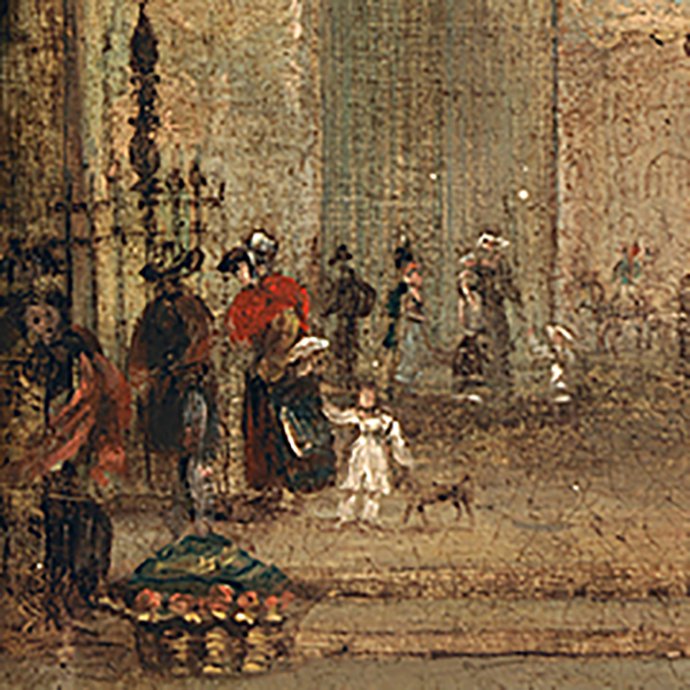I wouldn’t call it romance Jennifer

We always say in our family that every half hour is different with Alzheimer’s. Things can change dramatically within a short space of time: bad form can change to great form; stressful or anxious situations can pass quickly and seem like a distant memory.
Since being told to ‘live in the moment’ by medical professionals, things have become a lot easier. Long gone are the arguments and upset when Mammy would ask, 'Where is your father?' and we would answer with, 'Mammy, surely you know Daddy is dead?' This would make her go through the shock of Daddy’s death all over again, as if it was happening for the first time.
With more experience, and better strategies for dealing with such questions, we now know what to say: we live in the moment, and explain that Daddy is out at golf, or counting birds, or something else he would have done when he was alive, and that he will be back soon. The conversation passes with no stress on either of us.
I meet a lot of people when I’m out that appear to be in the early stages of dementia, probably still undiagnosed, and you empathise with them and their families. You know that their journey along the road of Alzheimer’s is only beginning – we might be further along that road, and still struggling at times, but experience brings knowledge and understanding too.
Mammy’s questions range from asking about my father, to asking about my Granny and Granda. I never knew my grandparents, as Mammy’s daddy died when she was 3 months old, and her mother when Mammy was in her mid-twenties.
She speaks so fondly about her childhood home, a thatched cottage. She was brought up in a happy and faith-filled house, with a loving mother and three sisters. We put ourselves back into this time when asked, though we never experienced it – only in the wonderful stories of yesteryear.
Mammy sees me, I feel, as a young girl again – I’m now 46 years old and she recently asked me had I got my homework done! She also has me in stitches at times, asking me questions like, ‘Well, are you romancing at the moment?’ and I say ‘Well Mammy, I wouldn’t call it romance, but I’ve been married for 18 years!’
This awful condition has robbed us of so many wonderful parts of my mother. She very rarely calls me my own name: instead I’m usually called that of my sister Rosaleen. It doesn’t bother me – I know she knows me, I know she knows that I belong to her and she belongs to me. What, really, is a name? It’s nothing to me at this stage, but it’s so important to one of my mum’s sisters, who really relies heavily on Mammy putting a name to her – and she always seem able to name her in an instant.
Not being able to say goodbye to my mum when we are leaving used to be so tough for me: we would have to pretend to be going into another room to run an errand. It’s a tough thing for my brother who comes from London and obviously really wants to kiss her goodbye. He asked me once how I dealt with it, and I explained that I just say goodbye in my heart when I am leaving. It would be too hard on Mammy to say it with words. It works for me and hopefully brought him some solace too.
There are still so many parts of Mammy that have not been stolen by the Alzheimer’s: she still has a wonderful sense of humour and fun; sarcasm in bucket loads; kindness to everyone around her; generosity of spirit; and her deep faith in God and Our Lady. All of those things are still there. Her occasional outrageous comments used to bring embarrassment, but now they just bring laughter.
Most of all, the thing that remains in Mammy is the love of her children and the love of her grandchildren. Mammy was the most wonderful Granny: fun, loving, generous, and always so happy to have the grandchildren come to stay. My two boys have wonderful memories of all the fabulous times with Granny and Granda. My parents would drop everything and jump in the car to Belfast if I needed them.
My fourteen-year-old son has Autism. Mammy was just so brilliant with Dáire, and he loves her very much still. I don’t bring my boys with me to visit her as often now, but on a recent visit with Dáire she was so happy to see him, and he to see her. The strange thing was that she looked at me and said ‘Isn’t he just fantastic. Hasn’t he done so well?’ The comment nearly knocked me for six. Could she possibly remember everything about him and his condition and how fabulous he is? I truly believe that some part of her did remember.
Planning the future of dealing with Mammy’s condition is very tough, but we are a close family whose memories of a wonderful happy childhood still run through all of us. I know we will all get through this together. My regards to all in similar situations.